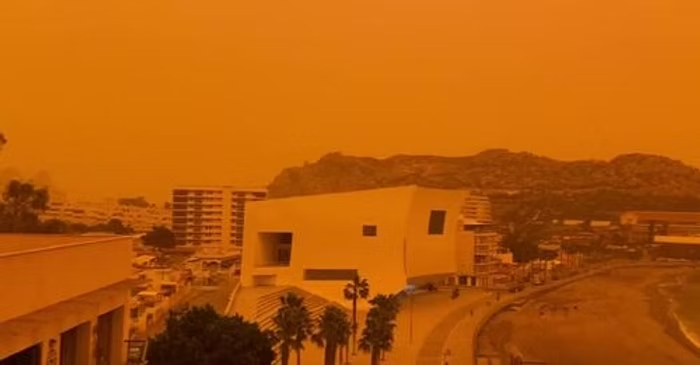Art, Film and Music at Lithium-Mine Protest in Portugal
- @ Cynthia Adina Kirkwood

- Aug 17, 2023
- 4 min read
Updated: Aug 20, 2023

Rivers of tears at the prospect of bulldozing and dynamiting an ecologically balanced landscape in a mural at the protest encampment in the parish of Covas do Barroso, Boticas Municipality
At an encampment protesting lithium mining, hundreds at Covas do Barroso participated through hikes, artists’ residency presentations, film screenings, concertina and other concerts, a puppet show, discussions and other activities, reported Porto Canal (August 16).
Two documentaries were scheduled to be shown at the six-day event. The first film: All We Have Is Us is a documentary that explores the ramifications of lithium mining in Chile and Serbia, followed by conversation with the directors.
The second documentary: Os Cantos dos Baldios (2022), directed by Jose Vieira, deals with what the inhabitants of the Serra do Caramulo described as the misery caused by the State occupation and forestation of the baldios, or common lands, in 1941. Baldios are under threat in Boticas. In the film, one man, dressed in cap, buttoned shirt and jacket, remembered: “The state deprived the villagers of going to the common land. People had to sell their cattle, and their children emigrated, many of them never to come back.”
During the five years of opposition to Savannah Lithium, the local coalition in Vila Real District has broadened from the United in Defense of Covas do Barroso (UDCB) and Montalegre com Vida. In March, a United Nations envoy opposed the mine and agreed that Barroso should not become "a sacrifice zone".
The organizers of the encampment, August 10-15, said:
“The government has approved the EIA (Environmental Impact Assessment), despite recognizing significant negative impacts on the population, on the biodiversity of these mountains, and on the quality of the water. It did so by imposing a narrative about the inevitability of lithium extraction.
“This narrative – which paints mining green and presents it as the only solution to decarbonization – is a fallacy. In reality, what the European Union and the national governments want to do – first, in Barroso, and later in many other territories – is to ensure a decarbonization process which does not jeopardize infinite economic growth. The promise of profit for some, and of less carbon-emitting cities, hides the sacrifice of entire territories and the continued violence associated with mobility policies based on individual cars.
“Those who want the project to go forward try to convince us that the government’s decision marks the end of a struggle. But we know that the war starts now.”
The coalition against lithium mining now consists of 26 local, national and international supporting groups , including the European Environmental Bureau, which consists of more than 180 groups in 40 countries standing for sustainable development, environmental justice and participatory democracy; MiningWatch Portugal, an independent and interdisciplinary monitoring network, and the Plurinational Observatory of Andean Salt Flats (OPSAL), which is a collective of indigenous communities, environmental activists and researchers protecting the unique ecosystem endangered by the advance of lithium miming.
At the third encampment at Quinta do Cruzeiro, some of the groups were present.
The increased demand for electric cars has propelled lithium into the category of “white gold” as mining companies compete for extraction contracts around the world. The light metal also is used in batteries for phones and laptops.
I live in the foothills of the Serra da Estrela which, until February 2022, also had been considered for lithium exploration. I oppose lithium mining in Portugal.
U.N. Envoy Opposes Savannah Mine
United Nations Special Rapporteur on Human Rights and the Environment, David R. Boyd, visited Portugal in September 2022. The document on his findings was presented on March 9 during the 52nd session of the Human Rights Council, reported Publico (March 26). It called for the proposed lithium mine in Barroso not to become “a sacrifice zone”.
“It is necessary ‘to identify and restore any sacrifice zones’ – areas of intense pollution or environmental degradation – “where private profits and interests have taken priority over human rights and the environment, also preventing the creation of future sacrifice zones.
“This is a general call for attention, but takes into account a specific case: the (proposed) future exploitation of lithium by the company, Savannah Lithium, in an open-pit mine in the village of Covas do Barroso (Boticas), a region classified as World Agricultural Heritage by the United Nations Food and Agriculture Organization (FAO), (of which there are only 60).
“Despite the great need for this mineral to carry out the ongoing ecological transition in Europe and the world, “large resource extraction projects that may violate human rights, in the name of green transition, are contrary to sustainable development, as several national and regional courts and commissions have concluded.
“These ‘sacrifice zones’, reads the report, “are completely incompatible with the human right to a healthy and ecologically balanced environment”, enshrined in article 66 of the Portuguese Constitution, and with the right to a clean, healthy and sustainable environment, in accordance with Resolution 76/300 of the United Nations Assembly.
“Portugal deserves credit for leading the world in recognizing the right to a healthy environment, ending the use of coal and accelerating renewable energy production, and rejecting in law offshore oil and gas development. . .
“It would be difficult to reconcile that history of leadership with the approval of a huge open pit mine in a community that is a globally recognized example of sustainable development.”



Comments